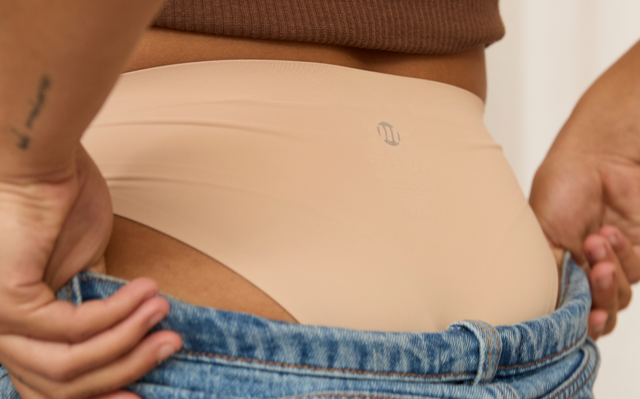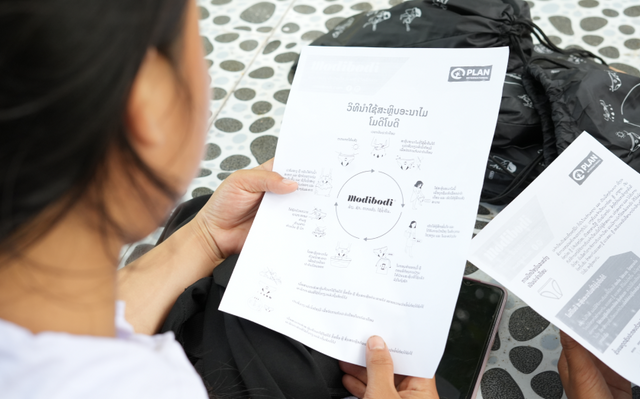PCOS-Selbstpflege: Top-Tipps zum Umgang mit unerwünschten Symptomen
PCOS – vielleicht hast du schon davon gehört, aber was genau ist das? Das polyzystische Ovarialsyndrom (kurz PCOS) ist eine hormonelle Erkrankung, die bis zu 1 von 10 Frauen mit Eierstöcken im gebärfähigen Alter betrifft. Es kann mit vielen lästigen Symptomen einhergehen, die deinen Alltag beeinträchtigen und beispielsweise deinen Menstruationszyklus, deine Haut und deine Haare beeinflussen.Über PCOS wird viel zu wenig gesprochen, daher möchten wir Ihnen einige unserer besten Tipps zur Linderung Ihrer Symptome verraten. Sozusagen eine kleine PCOS-Selbstfürsorge.
Warum PCOS-Selbstpflege wichtig ist
Selbstfürsorge und Mitgefühl sind wichtig. Punkt. Wenn Sie an PCOS leiden, ist es entscheidend, einige der Symptome zu lindern, die das Syndrom mit sich bringt.Hier sind einige der häufigsten:
- Unregelmäßige Perioden
- Keine Periode (Amenorrhoe oder „Amenorrhoe“ genannt)
- Übermäßiger Haarwuchs im Gesicht und/oder am Körper
- Haarausfall auf der Kopfhaut
- Akne
- Blähungen
- Gewichtsprobleme
- Stimmungsschwankungen (einschließlich Angstzuständen und Depressionen)
- Verminderte Fruchtbarkeit (aufgrund eines selteneren oder ausbleibenden Eisprungs)
„Manche Menschen haben möglicherweise Probleme mit ihrer Periode, andere leiden unter Gewichtsproblemen, sind müde oder haben Hautprobleme.“
Wir lügen Sie nicht an: Obwohl viele PCOS-Symptome behandelt werden können, verschwinden sie nicht von selbst. Aber ein wenig Selbstfürsorge und eine Änderung des Lebensstils können Ihnen helfen, die Situation in den Griff zu bekommen.
„Selbstfürsorge und ein guter Lebensstil sind sehr wichtig“, sagt Ashwini. „Eine nahrhafte Ernährung – beispielsweise eine mediterrane Diät ohne verarbeiteten Zucker –, vorzugsweise ohne Alkohol, ausreichende Flüssigkeitszufuhr und ausreichend Bewegung sind ein guter Anfang.“
Es gibt zwar kein Richtig oder Falsch, aber es gibt einige Hinweise darauf, dass intensitätsbasiertes Training die Insulinresistenz fördern kann. Aber mein wichtigster Ansatz ist immer die körperliche Bewegung – darauf konzentriere ich mich normalerweise.
Schlaf ist auch sehr wichtig. Suchen Sie unbedingt einen Arzt auf, wenn Sie unter Schlafstörungen wie Schlafapnoe leiden.
Bei genauerem Hinsehen
Sehen wir uns die drei häufigsten PCOS-Symptome genauer an und erfahren Sie, was Ihnen bei der Linderung Ihrer Beschwerden helfen kann.
Blähungen bei PCOS
Bei Blähungen im Zusammenhang mit PCOS spielen in der Regel zwei Hauptfaktoren eine Rolle: Hormone und Ernährung.Hormone wie Östrogen und Progesteron beeinflussen den Flüssigkeitshaushalt. Ein Ungleichgewicht dieser Hormone kann zu Wassereinlagerungen führen. Menschen mit PCOS haben oft einen ungewöhnlich niedrigen Progesteronspiegel, was sie anfälliger für Wassereinlagerungen und Blähungen machen kann.
Es gibt noch weitere Gründe für ein Völlegefühl. Manche Menschen fühlen sich beispielsweise während des Eisprungs aufgebläht . Es lohnt sich, die Ursache dafür zu untersuchen.
Menschen mit PCOS haben außerdem oft ein Ungleichgewicht im Darmmikrobiom. Ein unzufriedener Darm kann zu Blähungen führen, die durch bestimmte Lebensmittel verursacht werden können.
Das Verständnis der Auslöser von Blähungen kann entscheidend sein. Lesen Sie unseren Artikel über PCOS-freundliche Diäten.
Wenn Sie aufgrund von PCOS Blähungen bekommen, empfiehlt Ashwini, Ihren Arzt aufzusuchen und Blutuntersuchungen durchführen zu lassen. „Blutuntersuchungen sind sehr wichtig“, sagt sie. „Wir müssen verstehen, was mit Ihrem Eisen- und B12-Spiegel und Ihrer Schilddrüse passiert.“
„Wir müssen möglicherweise auch Ihre Ernährung überprüfen und eine Eliminationsdiät ausprobieren, um zu sehen, ob das gegen Ihr Blähbauch hilft.“
PCOS-Haarwachstum
PCOS kann manchmal zu übermäßiger Gesichts- und Körperbehaarung führen, oft an Stellen, an denen wir sie lieber nicht hätten. Übermäßiger Haarwuchs kann ein echter Vertrauensverlust sein, aber es gibt Möglichkeiten, ihn zu bändigen.Ungewöhnlicher Haarwuchs ist meist die Folge eines Androgenüberschusses im Körper. Dies kann der Grund für Hirsutismus sein, den wissenschaftlichen Begriff für übermäßigen Haarwuchs an Stellen, an denen man ihn lieber nicht sehen möchte.
Änderungen des Lebensstils, darunter die Reduzierung von Zucker und regelmäßige körperliche Betätigung, können dazu beitragen, Ihren Androgenspiegel zu senken und das unerwünschte Wachstum von Gesichtshaaren zu verlangsamen.
Möglicherweise helfen Medikamente wie Verhütungsmittel auch dabei, Ihren Zyklus zu regulieren und gleichzeitig die Haarpracht bei PCOS zu bekämpfen. Sprechen Sie jedoch unbedingt mit Ihrem Arzt, bevor Sie Medikamente einnehmen. Er kann Sie über Ihre Möglichkeiten informieren und Ihnen helfen, den besten Weg zu finden.
PCOS-Müdigkeit
Wachen Sie mit dem Gefühl auf, im Schlaf einen Marathon gelaufen zu sein? PCOS-bedingte Müdigkeit kann die Stimmung empfindlich trüben. Hormonelle Ungleichgewichte wie hoher Cortisolspiegel und niedriger Progesteronspiegel, Vitamin-D-Mangel und andere Nährstoffmängel (z. B. Eisenmangel, Vitamin-B-Komplex-Mangel und Magnesiummangel) sowie Schlafstörungen wie Schlaflosigkeit sind die üblichen Verdächtigen.Der beste Ansatz? Auch hier kann eine gesunde Ernährung hilfreich sein. Ein Ernährungsberater kann Ihnen helfen, einen individuellen Ernährungsplan zu erstellen. Und vergessen Sie nicht, auf eine gute Schlafhygiene zu achten . Schlaf ist enorm wichtig, wenn es darum geht, Ihr PCOS in den Griff zu bekommen.
Ashwini empfiehlt, bei PCOS-Müdigkeit Ihren Arzt aufzusuchen und Bluttests durchführen zu lassen.
„Eine Blutuntersuchung kann uns helfen, die Ursache der Müdigkeit herauszufinden“, sagt sie. „Wir prüfen, ob Sie sich ausreichend ernähren, wie gut Sie schlafen und wie gut Sie mit Stress umgehen.“
„All dies sind Ursachen für Müdigkeit.“
Erhalten Sie die Unterstützung und Antworten, die Sie benötigen
Unregelmäßige Perioden? Schnapp dir ein Paar (oder zwei) Modibodi-Unterhosen kann Ihnen helfen, weniger Stress zu haben. Anstatt sich über Auslaufen Sorgen zu machen, fühlen Sie sich sicher und wohl – unser Lieblingsduo.
Denken Sie daran: Wenn Sie mit PCOS-Symptomen zu kämpfen haben oder irgendetwas, das Sie hier gelesen haben, bei Ihnen die Alarmglocken läuten lässt, kann Ihr Arzt Ihnen helfen, die Antworten und die Unterstützung zu bekommen, die Sie brauchen.







